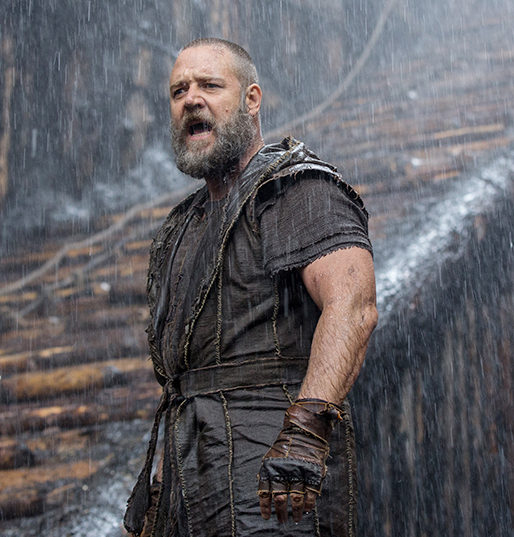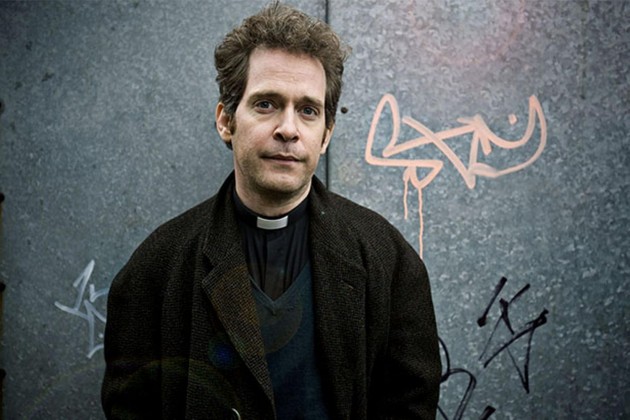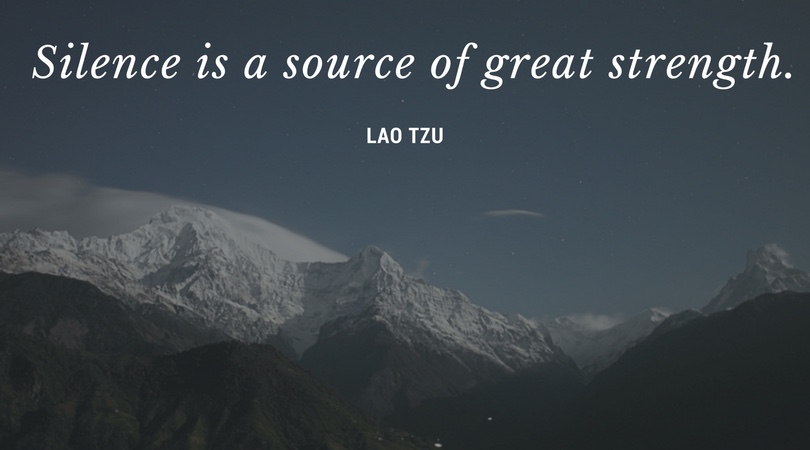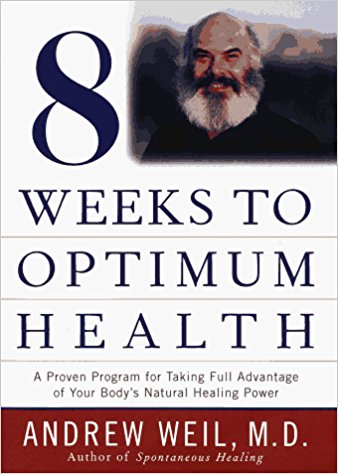Crisis of Faith
 There are plenty of movies like Silence, The Last Temptation of Christ and Noah that tackle characters experiencing a Crisis of Faith. They work because they address something most of us will face in our lifetime, whether or not you are religious. We all face cliff-edges in our life, and can either stay where we are, or take a Leap of Faith.
There are plenty of movies like Silence, The Last Temptation of Christ and Noah that tackle characters experiencing a Crisis of Faith. They work because they address something most of us will face in our lifetime, whether or not you are religious. We all face cliff-edges in our life, and can either stay where we are, or take a Leap of Faith.
Characters like Noah (Russell Crowe), Jesus (Willem Dafoe) and Father Rodrigues (Andrew Garfield) find that an event comes along with makes them question everything they thought they knew- in this case, their relationship with their God.
However, these examples are either fictional, biblical or historical. In the last few years, a brilliant TV series has shown a man of God in the modern world. This man faces constant Crisis of Faith, but when he overcomes his doubts, he is a better person for doing so.
Rev.
This BBC sitcom starring Tom Hollander depicts the Reverend Adam Smallbone (Hollander), married to an ambitious and talented solicitor, Alex (Olivia Colman). Despite reluctance from Alex, they leave their cushy country parish in a well-to-do area to go and run a parish in one of London’s poorest areas.
His best friend is an alcoholic homeless parishioner he shares beer and cigarette breaks with. His family is harassed by a clueless drug addict who is always trying to scam them.

Adam faces constant threats of his church closing down, a faith school that has little to do with its parish, and the bureaucracy of the Church of England. Adam, not only experiences challenges on a daily basis that make him feel as though his church is irrelevant. The strain it puts on his marriage and the kinds of tragedies he witnesses within inner-city London make him also question whether he truly believes in God.
We always hear him talking to God throughout the show’s quieter moments, but he’s always wondering if God is listening to him.
Empathy
Rev. works so well because our lead character, who preaches the word of God, is just as flawed as the rest of us are, regardless of our faith. Everyone who believes in some sort of God places their love and trust in this faith. It is only natural they would doubt themselves, and feel all sorts of emotions if something terrible happens. If their faith is not rewarded when they feel they need intervention, they can feel abandoned.
Despite preaching the word of God, Adam struggles on a daily basis as he attempts to hold together his marriage, his community, and his church. At one point, he seriously considers abandoning his faith forever. If you want to know whether or not he takes the Leap of Faith required to keep everything he holds dear, you’ll have to watch the show!
Leap of Faith

I often talk about Characters having to take a Leap of Faith detailed more thoroughly in my Character Map eBook and available in my online store. It takes courage to overcome the leap in the face of our fears. Characters will go on a journey throughout a novel, or a film, or a TV series, to discover what they want vs. what they really need. And if they have the courage to live an authentic life. By the end of their journey, they face a choice– to live in fear or to live in faith.
]]>
Faith, Belief, and Religion
Taking a respite from the usual format for Types Tuesday, as I found this brilliant video essay and just had to share it.
Faith and Belief are unique to every person, whether they are religious, spiritual, agnostic or atheist. It is a universal struggle, whoever you are, and it is something so nuanced that it can make for excellent drama, and create rich, empathetic conflicts for your Characters. It makes for such interesting and engaging stories.
Video Essay
I’ll discuss this in a little more detail on Thursday, but for now, I hope this video essay, by 21st Century Cinephile on Youtube, gives you something to think about:
]]> I hope you’ve been enjoying Writing Advice Wednesday for the last few months, but I’m trying something different for the rest of the year’s posts. As well as a relevant video essay I’ve found, I’ll be giving you writing exercises to kickstart you out of a slump or inspire you to reach higher or dig deeper. It’s exercises like this that form part of my One Hour Screenwriter course, which will help you write an entire feature film script in 22 weeks. You can purchase it at the shop here. You can also read testimonies here that show my methods have worked for a variety of writers.
I hope you’ve been enjoying Writing Advice Wednesday for the last few months, but I’m trying something different for the rest of the year’s posts. As well as a relevant video essay I’ve found, I’ll be giving you writing exercises to kickstart you out of a slump or inspire you to reach higher or dig deeper. It’s exercises like this that form part of my One Hour Screenwriter course, which will help you write an entire feature film script in 22 weeks. You can purchase it at the shop here. You can also read testimonies here that show my methods have worked for a variety of writers.
This week, stop looking at your screen!
Fill the silence with your own story
We consume hundreds of thousands of “story bites” every day without ever really noticing.
Newspapers, magazines, books, television, radio and the Internet stream millions upon millions of words into our brains telling us all manner of factual, fake, and fictional tales.
While your own story is taking form, I strongly suggest you undertake a media fast. What is a media fast? It is similar in concept to a food fast.
Dietary fasting helps lighten the body’s physical load and allows it to rest digestively. Taking a break from all the stories in the media can lighten the load on your brain and allow more space for your own story to gestate.
 For years, holistic physician Dr. Andrew Weil has recommended occasionally taking this kind of a media break. He believes media fasts are an integral part of good health and are outlined in his book, Eight Weeks to Optimum Health.
For years, holistic physician Dr. Andrew Weil has recommended occasionally taking this kind of a media break. He believes media fasts are an integral part of good health and are outlined in his book, Eight Weeks to Optimum Health.
Dr. Weil writes: “I think it’s useful to broaden the concept of nutrition to include what we put into our consciousness as well (as into our bodies).” He writes, “Many people do not exercise much control… and as a result take in a lot of mental junk food.”
I strongly suggest you take a break from all factual and fictional media stories for the remainder of this writing program. (Except, of course, viewing for specific assignments.)
Don’t read the newspaper or any magazines. Don’t watch any television news or entertainment programs. Don’t listen to talk radio. Don’t cruise the Internet for news, entertainment or research.
Don’t read any other books, fact or fiction. Don’t even read the jokes and stories people send via email.
When you have downtime or a few spare moments simply allow yourself to be surrounded by silence or instrumental music. Keep the din of media story words completely at bay.
Why is a media fast important? First of all, it will help you feel calmer, more relaxed and focused. Still the relentless media clatter and make more time for idle silence, quiet moments of reflection and staring off into space.
If you find more quiet time to daydream, muse and think, without media distractions, your story will begin to fill your head effortlessly. Listen to your story whispering to you.
Turning off and tuning out all those competing stories will help you tune in and communicate more clearly with your characters.
Don’t forget to get more sleep and allow your unconscious mind to do its important work.
I cannot stress enough that proper rest is a crucial tool to aid your imagination. Do you dream at night? Write down your dreams. Are there any specific dream images or fragments that stick with you after waking? Write them down.
Think about a story problem before going to bed and see what emerges. Write down your first thoughts on waking.
Don’t worry about being politically or socially irresponsible or missing out on important news during your fast. It’s impossible in today’s invasive media world to miss truly significant events. Believe me, someone will tell you if anything really important happens.
Give yourself the gift of a few weeks of silence to allow your story to fill the void you create by turning off the chatter of media stories.
Allow yourself to be bored. Stare and think. Be still. Be at rest.
Listen to the quiet inner voice that is your creative consciousness. Allow your own words to fill the stillness and listen carefully as your characters begin to speak more clearly!
Video Essay of the Week
But before you take a break, here’s an excellent video essay about reactions, not words:
Let me know how you found your media fast by emailing me at [email protected]. I’d love to hear from you as we go forward with more of these writing exercises. .
Until then, remember- all you need to do is Get Started and Keep Going!
– Laurie
]]>